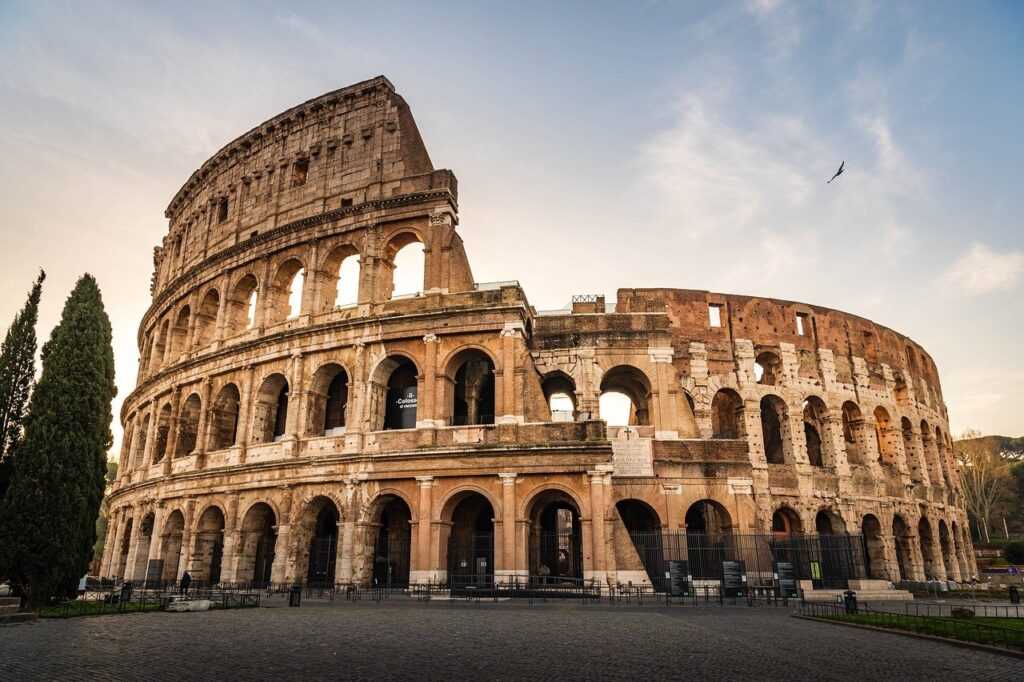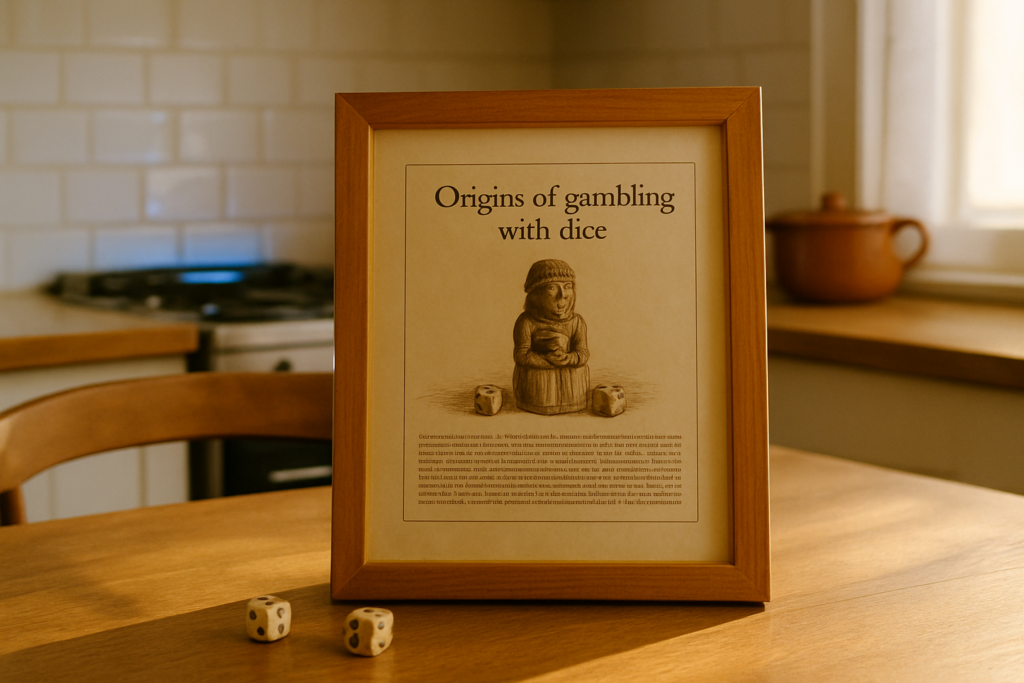Delving into the historical tapestry of early civilizations unveils a fascinating aspect of human interaction: betting. From ancient Mesopotamia to the Roman Empire, the practice of wagering has woven itself into the fabric of societies, offering insights into cultural values and social dynamics. As I embark on this exploration of the cultural significance of betting in early civilizations, I aim to shed light on how this seemingly simple activity transcended mere amusement to become a reflection of beliefs, rituals, and power structures of the time.
Through the lens of history, I’ll navigate the complexities of betting practices in civilizations where chance and skill intertwined, shaping not only individual destinies but also communal identities. Join me as we unravel the layers of significance behind the seemingly innocuous act of placing bets, revealing a deeper understanding of the cultural nuances that defined early societies.
Overview of Betting in Early Civilizations
Exploring the cultural significance of betting in early civilizations reveals a window into the past where this activity transcended mere entertainment. From ancient Mesopotamia to the Roman Empire, betting played a pivotal role in shaping societal norms, values, and power structures. In these early cultures, betting went beyond a simple game of chance; it intertwined with religious beliefs, social hierarchies, and even political decisions.
In Mesopotamia, one of the earliest recorded civilizations, betting was closely linked to religious practices. People believed that the outcome of bets was determined by the will of the gods, making it a sacred activity. Moreover, bets were not just about winning or losing; they symbolized divine favor and served as a means of communicating with the supernatural.
Moving forward to ancient Greece, betting became a social activity that reinforced community bonds. Events like the Olympic Games were not only about athletic prowess but also about wagering on the outcomes. Betting on these competitions was a way for individuals to show their support for their city-states and honor their gods through victory.
The Roman Empire took betting to another level by integrating it into everyday life. Emperors and nobles often organized elaborate games where betting played a central role. The Colosseum, famous for its gladiatorial contests, also witnessed intense betting among the spectators. Betting became a tool for social interaction, economic transactions, and even political maneuvering in Roman society.
The cultural significance of betting in early civilizations cannot be understated. It was a multifaceted activity that touched every aspect of society, from religious ceremonies to political decisions. By understanding the role of betting in these ancient cultures, we gain valuable insights into the complexities of early civilizations and how they perceived risk, reward, and fate.
Role of Betting in Cultural Practices
Exploring the role of betting in cultural practices reveals fascinating insights into the societal fabric of early civilizations. Betting was not merely a form of entertainment but a reflection of deep-rooted beliefs and norms that shaped communal interactions and power dynamics.
- Betting as a Ritualistic Tradition:
In many early civilizations, including Mesopotamia and ancient Greece, betting held a significant place as a ritualistic tradition. It was intertwined with religious ceremonies and festivals, symbolizing a connection between the mortal world and the divine realm. For example, in Mesopotamia, betting was considered a sacred activity, often associated with predicting outcomes as a way to communicate with the gods. - Fostering Community Cohesion:
The practice of betting played a pivotal role in fostering community cohesion and strengthening social bonds. Events like the Olympic Games in ancient Greece were not only about athletic competition but also served as platforms for betting, where individuals from diverse backgrounds came together to participate in this shared cultural activity. Betting on sporting events became a unifying factor that transcended differences and created a sense of camaraderie among participants. - Integration into Political and Social Structures:
As civilizations evolved, betting became intricately integrated into political and social structures, influencing decision-making and interactions at all levels of society. In the Roman Empire, betting was not only prevalent among the masses but also found favor among emperors and nobles. It served as a tool for social interaction, political maneuvering, and even as a means of displaying wealth and status. The prevalence of betting in daily life reflected its importance in shaping social hierarchies and power dynamics. - Reflection of Perception of Risk and Fate:
The cultural significance of betting in early civilizations reflects how societies perceived risk, reward, and fate. By engaging in betting activities, individuals showcased their beliefs in luck, fate, and the uncertainty of outcomes. The act of placing bets was more than a wager; it was a symbolic representation of individuals’ acceptance of unpredictable events and their willingness to embrace uncertainties in life.
The role of betting in cultural practices of early civilizations transcended mere gambling, offering a window into the intricate tapestry of societal values, beliefs, and dynamics. Understanding the cultural significance of betting provides valuable insights into how these civilizations navigated risk, fostered community ties, and negotiated power structures, shaping their individual destinies and communal identities.
Significance of Betting in Social Structures
Exploring the historical context of betting unveils its profound impact on social structures in early civilizations. Betting, far beyond mere entertainment, was deeply ingrained in the fabric of communal life, reflecting and influencing societal norms and power dynamics. In civilizations like Mesopotamia and ancient Greece, betting transcended mere leisure, forming part of ritualistic traditions intertwined with religious practices.
In these early cultures, betting was not just an act of chance but a symbolic representation of individuals’ faith in luck, fate, and the mysterious workings of the universe. It played a pivotal role in shaping communal interactions, fostering a sense of unity and shared beliefs. The integration of betting into religious ceremonies and communal events strengthened social bonds, creating a shared narrative of destiny and fortune among participants.
As societies evolved, the significance of betting expanded, becoming interwoven with political and social structures. The Roman Empire stands as a prime example of how betting permeated decision-making processes and social hierarchies. The practice of betting was not confined to leisure but extended its influence to realms of governance, where outcomes of bets could sway political allegiances and shape societal norms.
By engaging in betting practices, individuals in early civilizations showcased their acceptance of uncertainty and their willingness to embrace risk as an inherent part of life. The act of placing bets symbolized a shared acknowledgment of the unknown and a celebration of the unpredictable nature of existence. Through these communal rituals, individuals bonded over shared beliefs in destiny and chance, solidifying their connections within the social framework.
The cultural significance of betting reveals how early civilizations navigated risk, negotiated power dynamics, and reinforced communal identities. It served as a linchpin that connected individuals through shared beliefs and practices, transcending differences and fostering a sense of camaraderie among participants. The interplay between betting and social structures reflected not only individual destinies but also the collective consciousness of societies grappling with the complexities of fate and fortune.
Influence of Betting on Economic Systems
Exploring the historical landscape, we delve into the profound impact of betting on economic systems within early civilizations, shedding light on the intricate interplay between societal dynamics and financial frameworks. Betting’s influence extended beyond mere entertainment, permeating economic structures and delineating financial trajectories in ancient societies.
- Economic Transactions
Reflecting on the economic ramifications of betting, it is evident that wagers were not isolated activities but intricate components of economic exchanges. Betting transactions functioned as catalysts for economic transactions, injecting liquidity into markets and stimulating financial activities. Participants engaged in bets to not only showcase their prowess but also to partake in economic ventures, fostering a mutual reliance on betting for economic growth. - Market Fluidity
In the realm of economic systems, betting played a fundamental role in enhancing market fluidity and incentivizing trade. The influx of wealth resulting from betting outcomes bolstered market dynamics, promoting the circulation of resources and goods among different societal strata. This heightened economic fluidity facilitated economic expansions and propelled commercial exchanges, shaping the economic landscapes of early civilizations. - Resource Allocation
Betting exerted a discernible influence on resource allocation within ancient economies, dictating investment patterns and resource distribution. The outcomes of bets often determined resource redistribution, steering investments towards specific sectors or ventures favored by successful bettors. This allocation mechanism underscored the economic significance of betting, delineating resource priorities and guiding economic decision-making processes.
In essence, the integration of betting into economic systems transcended mere speculation, assuming a pivotal role in shaping economic frameworks and influencing financial trajectories within early civilizations. The symbiotic relationship between betting and economic systems underscores the multifaceted nature of wagering activities, intertwining cultural practices with economic imperatives to forge a cohesive societal tapestry.



 Aaron Delvalle is the insightful author behind Gamble Wise Roots, where he brings a fresh perspective to the world of gambling. His work covers essential topics such as casino news and updates, simplifying the basics for newcomers, breaking down odds for better understanding, and exploring the rich history and evolution of casino games.
Aaron's deep curiosity about the origins of betting drives his research, offering readers a well-rounded view of the gambling landscape. Through his writing, he aims to educate and engage both novices and seasoned players alike.
Aaron Delvalle is the insightful author behind Gamble Wise Roots, where he brings a fresh perspective to the world of gambling. His work covers essential topics such as casino news and updates, simplifying the basics for newcomers, breaking down odds for better understanding, and exploring the rich history and evolution of casino games.
Aaron's deep curiosity about the origins of betting drives his research, offering readers a well-rounded view of the gambling landscape. Through his writing, he aims to educate and engage both novices and seasoned players alike.
